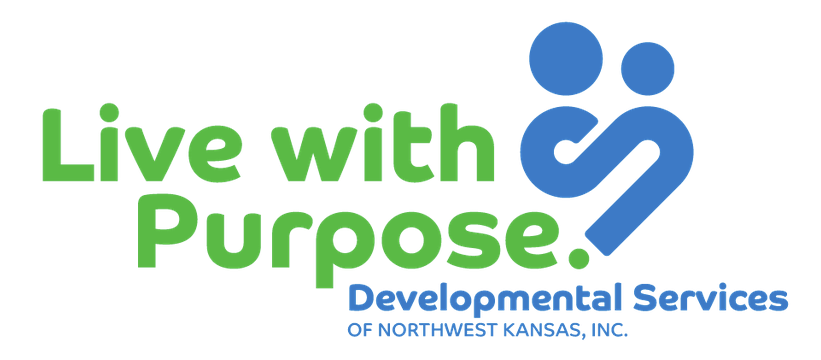GCSTIMES × SGS Strategic Cooperation on Carbon Management and Green Hotel Supply Innovation – Hospitality Net

Report on Strategic Cooperation Between SGS and GCSTIMES for Sustainable Development in the Hospitality Sector
1.0 Introduction: A Partnership for Global Goals
On November 7, at the 8th China International Import Expo, a strategic cooperation agreement was formalized between SGS, a global leader in testing, inspection, and certification, and GCSTIMES, a provider of hotel supplies and integrated solutions. This partnership is designed to accelerate sustainable practices across the hotel supplies value chain, directly contributing to the achievement of several United Nations Sustainable Development Goals (SDGs).
2.0 Milestone in Climate Action and Responsible Production
A significant outcome of this collaboration was the issuance of two key certifications from SGS to GCSTIMES, marking a pivotal step towards industry-wide climate accountability.
- ISO 14064 Greenhouse Gas Verification Statement: Validates the quantification and reporting of greenhouse gas emissions.
- ISO 14068-1 Carbon Neutrality Verification Statement: Represents the first such verification by SGS China within the hotel supplies sector, establishing a new benchmark for the industry.
These achievements directly support SDG 13 (Climate Action) by implementing verified carbon management systems and advance SDG 12 (Responsible Consumption and Production) by promoting transparent and sustainable production patterns within the hospitality supply chain.
3.0 Strategic Objectives and Future Outlook
The partnership establishes a new framework for sustainable development, with a focus on four key areas that align with the 2030 Agenda for Sustainable Development.
- Advancing Carbon Management: Deepening the implementation of carbon accounting, reduction, and verification processes to combat climate change (SDG 13).
- Building Green Supply Chains: Integrating sustainability criteria throughout the supply chain to foster responsible production and consumption (SDG 12) and build resilient infrastructure (SDG 9).
- Expanding International Certifications: Utilizing global standards to enhance transparency and accountability, fostering global partnerships for sustainable development (SDG 17).
- Incubating Sustainable Innovation: Leveraging technology and resource integration to develop innovative, low-carbon products and solutions for the hospitality industry (SDG 9).
4.0 GCSTIMES: A Profile in Sustainable Innovation
Since its inception in 2011, GCSTIMES has demonstrated a consistent commitment to sustainable development, evolving into a global platform for sustainable solutions. The company’s operational ethos is rooted in principles that support the SDGs.
- Industry, Innovation, and Infrastructure (SDG 9): GCSTIMES has transitioned from smart card R&D to pioneering sustainable material innovation, positioning itself as both a manufacturer and an innovator in green technology.
- Sustainable Cities and Communities (SDG 11): By providing sustainable products and services to over 100,000 international hospitality clients in more than 140 countries, GCSTIMES contributes to making hotels and, by extension, communities more sustainable.
- Global Partnerships (SDG 17): With five operational centers and 20 subsidiaries worldwide, the company actively engages in global partnerships to help the hospitality sector achieve its low-carbon and sustainable development objectives.
The collaboration between SGS and GCSTIMES exemplifies a powerful multi-stakeholder partnership (SDG 17) that sets a replicable model for achieving carbon neutrality and advancing the broader sustainable development agenda within the global hospitality industry.
Analysis of Sustainable Development Goals (SDGs) in the Article
1. Which SDGs are addressed or connected to the issues highlighted in the article?
- SDG 9: Industry, Innovation and Infrastructure: The article highlights innovation within the hotel supplies industry to promote sustainability. The collaboration between SGS and GCSTIMES focuses on creating a “scalable and replicable carbon-neutrality benchmark” and advancing “sustainable material innovation,” which directly relates to upgrading industry for greater sustainability.
- SDG 12: Responsible Consumption and Production: The core of the partnership is to establish “green supply chains” and promote “sustainable supplies.” By implementing a “closed-loop carbon management system” for the full product lifecycle, GCSTIMES is actively working towards more sustainable patterns of production, a key objective of this goal.
- SDG 13: Climate Action: The article is centered on climate change mitigation efforts. Terms like “carbon management,” “carbon reduction,” “Greenhouse Gas Verification,” and “Carbon Neutrality” are used throughout, demonstrating a direct focus on taking action to combat climate change by reducing emissions within the hospitality sector.
- SDG 17: Partnerships for the Goals: The article is an announcement of a “strategic cooperation agreement” between two distinct organizations, SGS and GCSTIMES. This partnership leverages the unique strengths of each entity—SGS’s expertise in certification and GCSTIMES’s industry leadership—to “jointly embark on a new journey to advance full-value-chain carbon reduction practices,” embodying the collaborative spirit of SDG 17.
2. What specific targets under those SDGs can be identified based on the article’s content?
SDG 9: Industry, Innovation and Infrastructure
-
Target 9.4: “By 2030, upgrade infrastructure and retrofit industries to make them sustainable, with increased resource-use efficiency and greater adoption of clean and environmentally sound technologies and industrial processes…”
Explanation: The initiative to establish a “closed-loop carbon management system” and the focus on “sustainable material innovation” are direct efforts to retrofit the hotel supplies industry with cleaner, more sustainable processes, as described in this target.
SDG 12: Responsible Consumption and Production
-
Target 12.6: “Encourage companies, especially large and transnational companies, to adopt sustainable practices and to integrate sustainability information into their reporting cycle.”
Explanation: GCSTIMES is adopting sustainable practices and, by undergoing third-party verification from SGS (ISO 14064 and ISO 14068-1), is formally integrating sustainability information and verification into its corporate framework. This action serves as a model to encourage other companies in the sector.
SDG 13: Climate Action
-
Target 13.3: “Improve education, awareness-raising and human and institutional capacity on climate change mitigation, adaptation, impact reduction and early warning.”
Explanation: By creating a “scalable and replicable carbon-neutrality benchmark in hospitality,” the partnership is building institutional capacity and raising awareness within the hotel supplies sector on how to mitigate climate impact through verified carbon management.
SDG 17: Partnerships for the Goals
-
Target 17.16: “Enhance the global partnership for sustainable development, complemented by multi-stakeholder partnerships that mobilize and share knowledge, expertise, technology and financial resources…”
Explanation: The “strategic cooperation agreement” between SGS, a global certification expert, and GCSTIMES, an industry leader, is a clear example of a partnership that mobilizes and shares knowledge and expertise to support sustainable development goals, specifically low-carbon development.
3. Are there any indicators mentioned or implied in the article that can be used to measure progress towards the identified targets?
- ISO 14064 Greenhouse Gas Verification Statement: This is a specific, formal indicator mentioned in the article. It measures the successful third-party verification of a company’s greenhouse gas emissions accounting, providing a quantifiable measure of climate action and responsible production.
- ISO 14068-1 Carbon Neutrality Verification Statement: This is another explicit indicator mentioned. It measures the achievement and verification of carbon neutrality for a company’s operations and products. The article notes this is the “first” such statement in the sector, implying that the number of companies achieving this certification can be a metric for progress.
- Establishment of a Closed-Loop Carbon Management System: The article implies that the implementation of such systems (covering “carbon accounting, emissions reduction implementation, and third-party verification”) is an indicator of a company’s commitment to sustainable industry practices (SDG 9) and responsible production (SDG 12).
- Formation of Strategic Cooperation Agreements: The agreement itself is an implied indicator for SDG 17. The number of such partnerships between certification bodies and industry players to advance sustainability can be used to measure progress towards collaborative action for the goals.
4. Summary Table of SDGs, Targets, and Indicators
| SDGs | Targets | Indicators |
|---|---|---|
| SDG 9: Industry, Innovation and Infrastructure | 9.4: Upgrade industries to make them sustainable and adopt clean and environmentally sound technologies. | Implementation of a “closed-loop carbon management system” and adoption of “sustainable material innovation.” |
| SDG 12: Responsible Consumption and Production | 12.6: Encourage companies to adopt sustainable practices and integrate sustainability information into their reporting. | The issuance and adoption of third-party verification statements for sustainable practices. |
| SDG 13: Climate Action | 13.3: Improve institutional capacity on climate change mitigation. | The issuance of the ISO 14064 Greenhouse Gas Verification Statement and the ISO 14068-1 Carbon Neutrality Verification Statement. |
| SDG 17: Partnerships for the Goals | 17.16: Enhance the global partnership for sustainable development through multi-stakeholder partnerships. | The formation of the “strategic cooperation agreement” between SGS and GCSTIMES to advance carbon reduction. |
Source: hospitalitynet.org
What is Your Reaction?
 Like
0
Like
0
 Dislike
0
Dislike
0
 Love
0
Love
0
 Funny
0
Funny
0
 Angry
0
Angry
0
 Sad
0
Sad
0
 Wow
0
Wow
0













































































